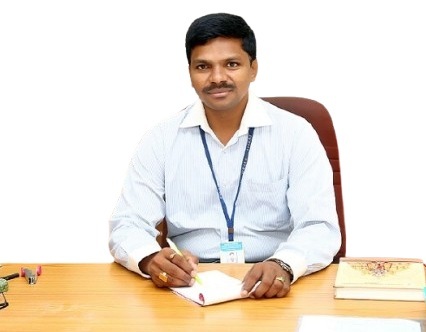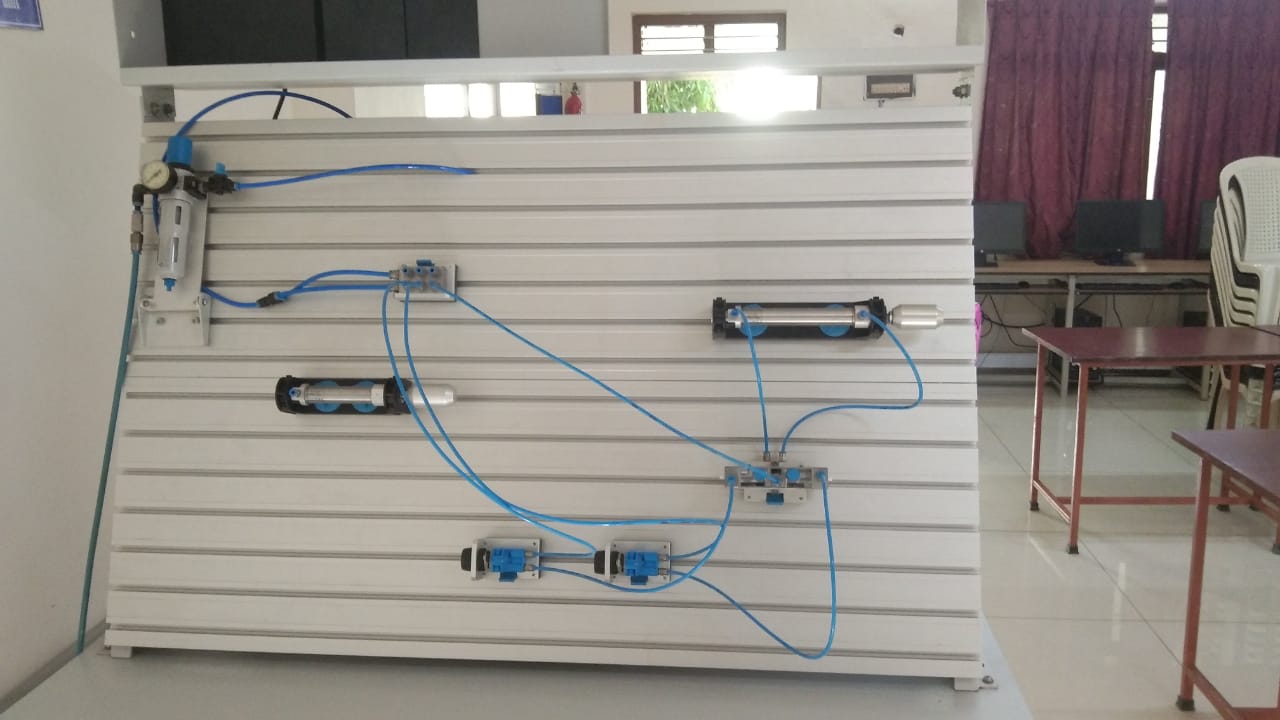

The Department of Mechanical Engineering has been in existence ever since the college started in 1998. Department is affiliated to JNTU. B. Tech. Program is accredited by NBA-AICTE in 2007, 2012 (provisionally), and under Tier-II in 2016 and Tier-I in 2019.
The Programme was accredited by NBA thrice in the years 2007, 2012, 2016 under Tier-II and subsequently accredited under Tier-I in 2019 and 2022.
The Department offers UG and PG programs with an intake of 60+6 and 6 respectively. It covers 5721 sq.mts with modern labs and a team of 23 faculty members.
Total area of the Department is 5721 sq.mts. The Department has facilities in terms of faculty, infrastructure and equipment. The Department has a team of diversely qualified faculty including 4 Professors, 3 Associate Professors and 16 Assistant Professors, who aims at delivering quality lectures that blends with their rich research experience. The total worth of the equipment available in the Department is Rs.289.87 Lakhs
Numerous research papers have been published in National and International Journals and Conferences. The Department arranges guest lectures by eminent professors from India and abroad, scientists from research organisations and experts from industry to bridge the gap between academics and industry. Faculty members are encouraged to improve their academic qualification and to gain experience by attending FDPs, workshops, conferences etc. They are also encouraged to present research papers at workshops and conferences, and to participate in co-curricular and extracurricular activities.
The Department promotes active industry-institute collaboration by organizing workshops and by taking part in sponsored research projects and consultancy services. Visits to the industries for faculty and students are frequently arranged to enhance the practical exposure with the real corporate world. Department also organizes programmes like Alumni interaction sessions with current students and make them familiar with specific market requirements and demands.
Two Industry supported Labs were established in associated with APSSDC-DASSAULTS Lab and European Centre for Mechatronics, Germany.
To enhance the capabilities of students and mould them into innovative, employable, entrepreneurial,socially responsible graduates successful in advanced fields of reserach.
To impart quality education, ethical values, social responsibilities, employability, research and entrepreneurial skills.
PEO-I: Progress in wide range of mechanical engineering fields with solid foundation in physical and engineering sciences.
PEO-II: Contribute as members of multi disciplinary engineering teams, solve mechanical engineering and allied field problems resulting in significant societal development.
PEO-III: Achieve goals by pursuing higher studies / research, become entrepreneurs.
PEO-IV: Become responsible citizens by undertaking active role in their community.
PO - 1: Engineering knowledge: Apply the knowledge of mathematics, science, engineering fundamentals, and an engineering specialization to the solution of complex engineering problems.
PO - 2: Problem analysis: Identify, formulate, review research literature, and analyze complex engineering problems reaching substantiated conclusions using first principles of mathematics, natural sciences, and engineering sciences.
PO - 3: Design/development of solutions: Design solutions for complex engineering problems and design system components or processes that meet the specified needs with appropriate consideration for the public health and safety, and the cultural, societal, and environmental considerations.
PO - 4: Conduct investigations of complex problems: Use research-based knowledge and research methods including design of experiments, analysis and interpretation of data, and synthesis of the information to provide valid conclusions
PO - 5: Modern tool usage: Create, select, and apply appropriate techniques, resources, and modern engineering and IT tools including prediction and modeling to complex engineering activities with an understanding of the limitations.
PO - 6: The engineer and society: Apply reasoning informed by the contextual knowledge to assess societal, health, safety, legal and cultural issues and the consequent responsibilities relevant to the professional engineering practice
PO - 7: Environment and sustainability: Understand the impact of the professional engineering solutions in societal and environmental contexts, and demonstrate the knowledge of, and need for sustainable development.
PO - 8: Ethics: Apply ethical principles and commit to professional ethics and responsibilities and norms of the engineering practice.
PO - 9: Individual and team work: Function effectively as an individual, and as a member or leader in diverse teams, and in multidisciplinary settings.
PO - 10: Communication: Communicate effectively on complex engineering activities with the engineering community and with society at large, such as, being able to comprehend and write effective reports and design documentation, make effective presentations, and give and receive clear instructions
PO - 11: Project management and finance: Demonstrate knowledge and understanding of the engineering and management principles and apply these to one’s own work, as a member and leader in a team, to manage projects and in multidisciplinary environments.
PO - 12: Life-long learning: Recognize the need for, and have the preparation and ability to engage in independent and life-long learning in the broadest context of technological change.
PSO-1: Apply Engineering Principles for design, manufacturing and maintenance of mechanical systems
PSO-2: Execute multi disciplinary projects and exhibit managerial, leadership and entrepreneurial skills
| UG Programme | B.Tech (Mechanical Engineering) |
| Year of Establishment | 1998 |
| Intake | 60 |
| PG Programme | M.Tech (Automated Manufacturing Systems) |
| Year of Establishment | 2006 |
| Intake | 6 |

"Hard work beats talent when talent doesn't work hard."
Wishing you all the very best for your future endeavors. Enjoy your learning journey at our institute.

The Mechatronics Lab equips students with practical skills in system modeling, sensors, actuators, PLCs, MATLAB, and Automation Studio. It enables the design, simulation, and control of smart systems using pneumatics, electro-pneumatics, and embedded platforms, fostering a strong foundation in modern automation and intelligent system integration.